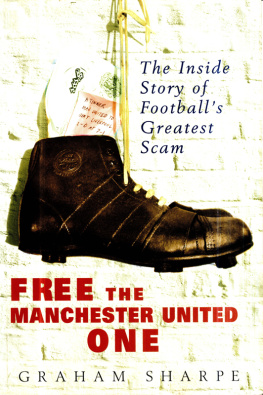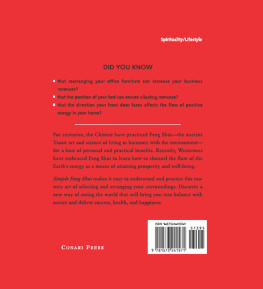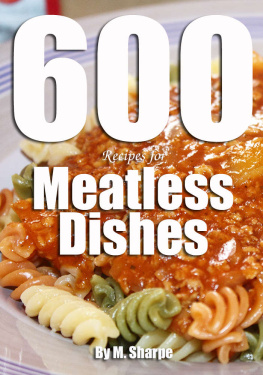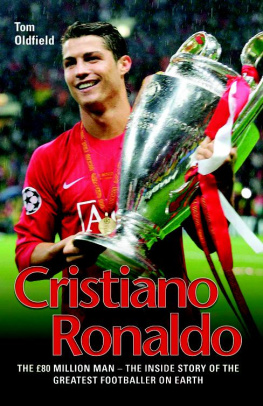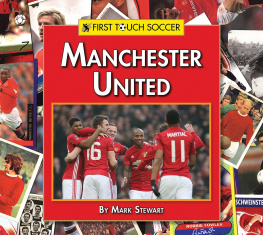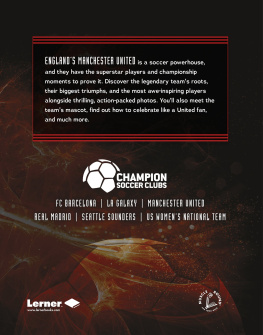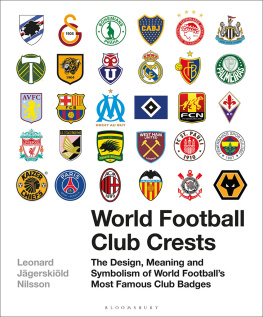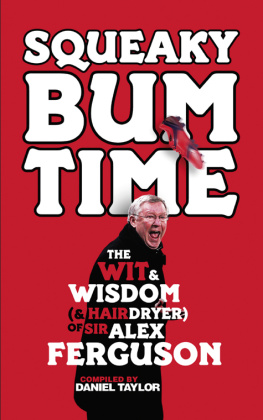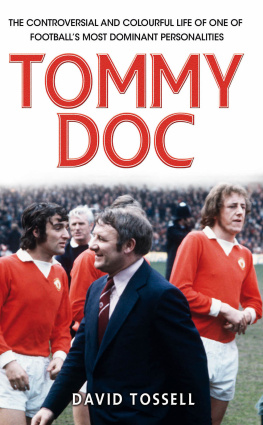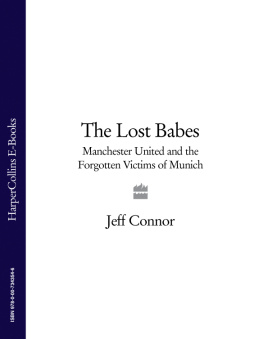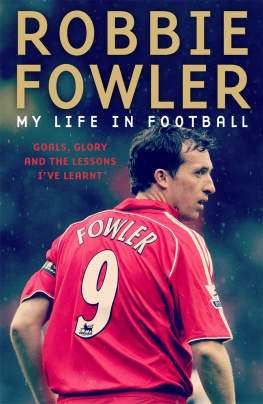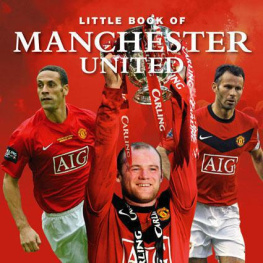

Contents
Manchester United Museum and Tour Centre displays one of the most comprehensive collections of football memorabilia in Britain. It is open seven days a week from 9.30 a.m. until 5.00 p.m. Tours of the stadium are also available. Admission charges apply and times of tours and entry to the Museum are subject to alteration.
Manchester United Museum
Sir Matt Busby Way
Old Trafford
Manchester
M16 0RA
Tel: +44(0) 161 868 8635
Fax: +44(0) 161 868 8862
Email:
Website: www.manutd.com
To Layne and Lizzie Patterson,
the most hospitable Manchester United
fans in the land.
Preamble
Out for my morning run, I spotted a football sitting forlornly several yards inside the wire surrounding the pitch on which I had played most of my Sunday football career. I wondered whether I should rescue the sorry-looking ball and take it home for my sons to use as a kickabout. Was it worth the effort and slight risk involved in shinning over the fence to rehabilitate the football? I couldnt tell from where I was whether the ball was usable or a deflated reject. There was only one way to find out. I climbed over the fence and picked up the ball. It was soft, needed inflating, but felt as though it would respond to a pump. Getting back over the fence with its jagged, wiry strands was not easy, but I managed it. The football did service as a training ball and the boys and their team were all well pleased that Id bothered to take the trouble to rescue it and allow it to resume a useful existence.
Foreword
I first came across the story of the bent match between Manchester United and Liverpool while researching my book on the history of betting in football, Gambling On Goals. I was intrigued by the bare bones of the tale, the best-documented example of a genuinely squared game among so many rumoured fixes and riggings that can never be conclusively proved. The most fascinating aspect of the game was the insistence of one of the so-called ring-leaders that he was innocent. Of the eight players subsequently barred sine die, he was the only one whose suspension was maintained until he was far too old to make a comeback.
Six of the guilty parties admitted their involvement and were pardoned. One tragically died in the First World War. But Enoch Knocker West went to his grave still adamantly declaring he had been wronged. I thought it would be a fascinating exercise to find out how and why the whole incident had come about. But I also wanted to establish whether there was the slightest chance that Enoch had indeed been wrongly accused and, if so, to win for him a posthumous pardon or, at least, an acknowledgement from the football authorities that he had been hard done by. This is the story of that match and my efforts to Free the Manchester United One.
Acknowledgements
Trying to re-create a time nearly a century removed from ones own is not possible without a great deal of help and I must place on record my gratitude to those who selflessly assisted my endeavours. Among them I include Simon Inglis, whom I had admired from afar, and whose own Soccer In The Dock had encouraged my initial interest in this game. Simon kindly permitted me to borrow his original notes, compiled when writing about the match in that book. We enjoyed an Italian meal together, during the course of which it emerged that we share a love of pretty obscure mid-sixties psychedelia and blues music me only listening, but Simon often playing.
Simon remains convinced that his book Sightlines (Yellow Jersey, 2000) was badly treated by the judges of the prestigious William Hill Sports Book of the Year, which award I initiated. I know he is wrong but understand why he feels unable to attend the ceremonies at which the annual winner is announced. The invitation is there permanently.
Chas Sumner, Chester City archivist, helped me to locate details of the mysterious Lol Cook, who was one of the eight players suspended but who was listed as being a Chester player and whose relationship with the United and Liverpool players was initially unclear.
My good friend and former colleague on the board of Wealdstone FC, Layne Paterson who has been nurturing his own Manchester United-related book idea for more years than I care to recall hunted through his massive collection of United books to track down references to the match and those who took part in it. Im not sure that he didnt welcome the excuse to pore over the volumes without attracting the criticism of his lovely wife Lizzie. I am delighted to dedicate this book to the two of them.
David Barber, Librarian and Archivist at the FA, allowed me access to his volumes and, although we were unable to locate the minutes of the Commission that investigated the match, I found some helpful material there. Hugh Hornby at the National Football Museum; Banker and Liverpool enthusiast Alan Hindley supplied me with stats and details; while Knockers grandson, Roger West, was enthusiastic and helpful in progressing the project.
My family Sheila, Steeven and Paul suffered, as ever, when, from being the leader of the anti-Man U brigade, I became obsessed with the clubs history, up to and including 1915, for the duration of the book.
I found much useful material at the British Newspaper Library in Colindale even though they occasionally seemed unwilling to let me in. Cant blame them really.
It was great to find Knockers son, Eric, so vibrantly alive, if still somewhat unsure about his feelings towards his father perhaps this book will help him in that respect. After writing the book, I have a grudging respect and affection for someone who was clearly a difficult character to deal with, who insisted on ploughing his own furrow and who didnt suffer fools gladly, if at all perhaps I recognised many of my own traits in there. Well done, Knocker, guilty or innocent!
Thanks very much to everyone else who helped out.
Graham Sharpe,
August 2003
Prologue The Pre-fix
Monday-night regulars hunched over their pints at The Dog and Partridge pub in Manchester had been digesting the latest news of the war, and now their discussion turned to the forthcoming big game between Manchester United and Liverpool to be held a week later on Good Friday 1915. There was little optimism in the air. It was a must-win match for the relegation-threatened Old Trafford club against rivals who had a cushion of a few points but who were not wholly out of the woods.
As the drinkers pondered how United boss John Robson would plot a course to safety in the final eight games of the season, some of them might have noticed a little knot of men sitting in the corner, deep in animated conversation. Keen Manchester United supporters and knowledgeable followers of football and cricket would have remarked that the small group contained some familiar faces.
Wasnt that United centre half Arthur Whalley who had just gone up to the bar to order a round of pints? And the chap whod just called out to him to hurry up didnt he resemble prolific forward Enoch Knocker West? Surely one of the other fellows was Wests great pal and inside forward partner Sandy Turnbull? As for that other bloke with them wasnt he Jackie Sheldon, whod been a winger with United until hed left to play for Liverpool, just before Christmas 1913? Could that be Lancashire cricketer Lol Cook with them?
Most of them were likely to be in one of the two teams lining up the following Friday. But then, why shouldnt they get together for a friendly glass or two before the game? Mind you, it didnt seem that friendly. They werent getting on at all well. A few heated words had been exchanged. Voices were raised. Other patrons stopped talking and strained to hear what the argument was about. Some bold souls were about to go and ask the group for their opinion about the forthcoming match and to seek reassurance that United would survive. But the footballers if indeed that was who they were quickly finished their drinks and departed into the typically damp, late-March Mancunian twilight.
Next page
